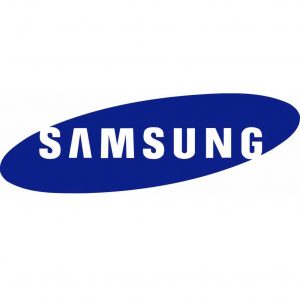 Samsung’s (SSNLF) latest deal, announced Monday, will find it acquiring U.S. auto-parts supplier Harman International for $8 billion in an all-cash deal. Samsung’s $112-a-share offer for Harman is well below the roughly $145 that each Harman share was worth early last year. However, the deal values Harman at 15.8 times next year’s adjusted earnings and represents a 28 percent premium from where its shares traded on Friday.
Samsung’s (SSNLF) latest deal, announced Monday, will find it acquiring U.S. auto-parts supplier Harman International for $8 billion in an all-cash deal. Samsung’s $112-a-share offer for Harman is well below the roughly $145 that each Harman share was worth early last year. However, the deal values Harman at 15.8 times next year’s adjusted earnings and represents a 28 percent premium from where its shares traded on Friday.
The Korean technology giant is looking for other ways to make money as the smartphone market is maturing. Harman is best known for making car audio systems under brand names such as Harman/Kardon and JBL. In the fiscal year ended September, roughly 65 percent of Harman’s revenue came from supplying chips, audio systems and other parts to vehicles.
The deal for Harman is a rare one for Samsung, which keeps tight control of its supply chain. The transaction is the largest in Samsung’s history. Samsung has done some smaller deals in the past few months, including purchasing a mobile-payment firm, a cloud services company, and an artificial intelligence startup founded by the creators of Siri.
Young Sohn, the president and chief strategy officer of Samsung Electronics, said in a news release, “The vehicle of tomorrow will be transformed by smart technology and connectivity in the same way that simple feature phones have become sophisticated smart devices over the past decade.” Samsung said that it would also have access to Harman’s designers and engineers, but did not give details on what sorts of services they might build together.
Harman’s chairman and chief executive Dinesh Paliwal would continue to run the operation, and it would keep the company’s facilities. The deal is expected to close in mid-2017. Samsung was advised by Evercore, with Paul Hastings as legal counsel. Harman was advised JPMorgan and Lazard, with Wachtell, Lipton, Rosen & Katz as legal counsel.
Samsung isn’t the only one making the bet on smarter cars. Last month, Qualcomm, which supplies chips to Samsung’s smartphones, agreed to buy NXP Semiconductors for $39 billion for NXP’s automotive-chip business. Last year, NXP merged with rival Freescale to become the biggest auto-semiconductor maker. Apple and Google have also been developing new technology to make smarter cars.
